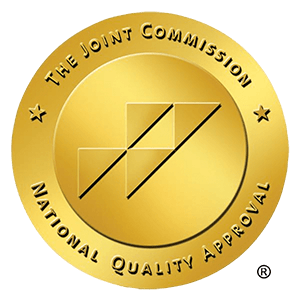In the pursuit of mental wellness, one essential option for many individuals is Intensive Outpatient Programs (IOPs). However, navigating the array of available programs can be daunting. How do you choose the right one to suit your unique mental health needs? In this guide, we’ll delve into the key factors to consider when selecting an IOP tailored to your requirements. From understanding the structure and offerings of various programs to assessing their compatibility with your treatment goals, we’ll equip you with the knowledge needed to make an informed decision. Whether you’re seeking support for anxiety, depression, addiction, or other mental health challenges, finding the right IOP can be pivotal in your journey towards healing and recovery. Join us as we explore the crucial considerations and tips for selecting the perfect IOP to meet your mental health needs, empowering you to take the next step towards a brighter, healthier future.
Personalizing Your IOP Experience: Tailoring Treatment to Your Needs
Embarking on an Intensive Outpatient Program (IOP) for mental health treatment is a significant step toward healing and personal growth. One of the advantages of an IOP is the opportunity to personalize your experience, aligning the treatment with your individual needs, preferences, and goals. Here’s how you can make the most of your IOP journey by personalizing your experience:
Understanding Your Needs and Goals
Begin by gaining clarity on your mental health needs and treatment objectives. Reflect on your symptoms, challenges, strengths, and aspirations. Consider what specific areas of your life you want to improve or address through the IOP. This self-awareness will guide your decision-making process and help you communicate effectively with your treatment team.
Open Communication with Treatment Providers
Establish open and honest communication with the professionals overseeing your care in the IOP. Share your concerns, experiences, and treatment preferences openly. Discuss any past therapy experiences, medication history, or barriers to treatment that may inform your personalized plan. Your treatment providers can offer valuable insights and collaborate with you to design a tailored treatment approach.
Collaborative Treatment Planning
Engage in collaborative treatment planning with your therapy team to develop a personalized care plan that addresses your unique needs and goals. This plan may include specific therapeutic modalities, treatment objectives, and measurable outcomes tailored to your situation. Collaborate with your providers to set realistic and achievable goals that align with your values and aspirations.
Flexibility and Adaptability
Recognize that personalization involves flexibility and adaptability throughout your IOP journey. Your needs and circumstances may evolve over time, requiring adjustments to your treatment plan or therapeutic interventions. Be open to trying new approaches, exploring different techniques, and adapting to changes in your progress or challenges you encounter along the way.
Exploring Therapeutic Modalities
Take advantage of the diverse therapeutic modalities offered within the IOP to find what resonates best with you. Whether it’s individual therapy, group counseling, psychoeducation sessions, experiential activities, or holistic interventions, explore various approaches to discover what feels most effective and meaningful for your healing journey.
Navigating Insurance Coverage for IOPs: Key Points to Consider
Understanding your insurance coverage is a crucial step in accessing Intensive Outpatient Programs (IOPs) for mental health treatment. Here are some key points to consider when navigating insurance coverage for IOPs:
- Review Your Insurance Policy: Familiarize yourself with the details of your insurance policy, including coverage for mental health services, deductibles, copayments, and any limitations or exclusions related to IOPs.
- Verify In-Network Providers: Determine if the IOP you’re considering is in-network with your insurance plan. In-network providers typically offer services at lower costs, making treatment more affordable for you.
- Obtain Preauthorization: Some insurance plans require preauthorization for IOP treatment. Contact your insurance provider to determine if preauthorization is necessary and how to obtain it before starting the program.
- Understand Financial Responsibility: Clarify your financial responsibility for IOP treatment, including copayments, coinsurance, and any out-of-pocket expenses. Knowing your financial obligations upfront can help you plan accordingly.
Navigating insurance coverage for IOPs can be complex, but understanding your policy, verifying in-network providers, obtaining preauthorization, clarifying financial responsibility, and appealing denied claims are essential steps to accessing the mental health treatment you need.
Factors to Consider When Choosing an IOP
When selecting an Intensive Outpatient Program (IOP) for your mental health needs, several crucial factors should guide your decision-making process. Here’s an in-depth exploration of the key considerations:
Treatment Approach and Philosophy
Understand the treatment modalities and philosophies employed by the IOP. Some programs may focus on cognitive-behavioral therapy (CBT), dialectical behavior therapy (DBT), mindfulness-based techniques, or a combination of approaches. Choose an IOP whose therapeutic approach resonates with your personal preferences and needs.
Staff Qualifications and Experience
Assess the qualifications and experience of the program’s staff, including therapists, counselors, psychiatrists, and other professionals. Look for licensed and credentialed individuals with expertise in treating your specific mental health concerns.
Program Structure and Schedule
Examine the structure and schedule of the IOP to ensure it fits into your daily life and commitments. Consider factors such as session frequency, duration, timing (daytime or evening), and flexibility for work or school obligations.
Level of Care and Intensity
Determine the intensity of care offered by the IOP based on your current mental health needs. Some programs provide more intensive treatment with frequent sessions and comprehensive support, while others offer a less intensive approach suitable for individuals with milder symptoms or greater autonomy.
Specialization and Focus Areas
Consider whether the IOP specializes in treating specific mental health conditions or populations. Some programs may focus on addiction recovery, mood disorders, trauma, eating disorders, or dual diagnosis (co-occurring substance abuse and mental health disorders). Choose an IOP that addresses your primary concerns effectively.
Conclusion
When seeking the ideal Intensive Outpatient Program (IOP) to address mental health needs, Core Recovery stands as a trusted resource. With our commitment to tailored care and comprehensive support, individuals in Phoenix, Arizona, and beyond can rely on us to navigate their journey towards healing. Through our compassionate approach and evidence-based practices, we strive to empower each individual to reclaim their well-being and thrive. Contact us today at 602-926-7729 to embark on your path towards mental wellness with confidence and assurance.





 In CA By O360®
In CA By O360®